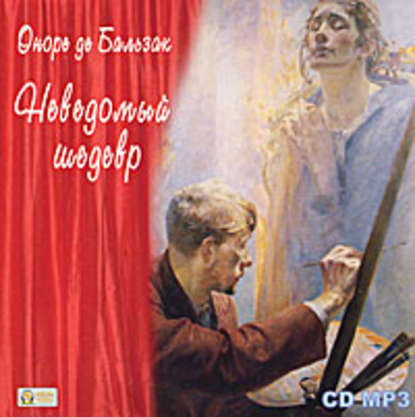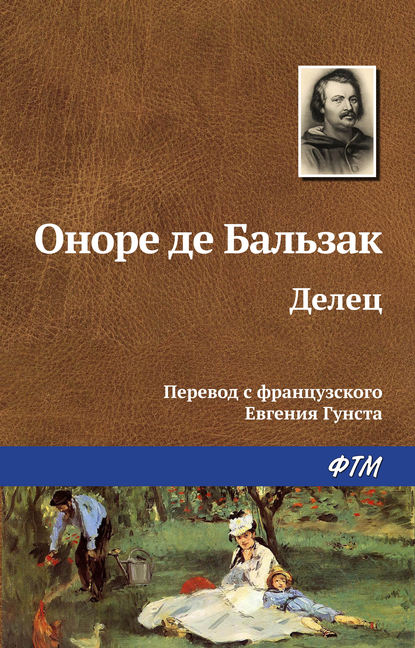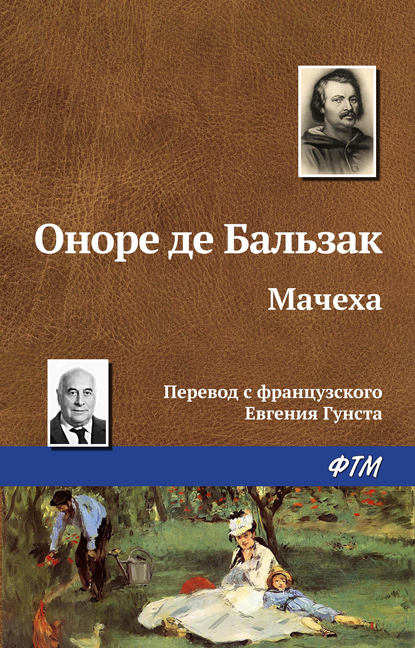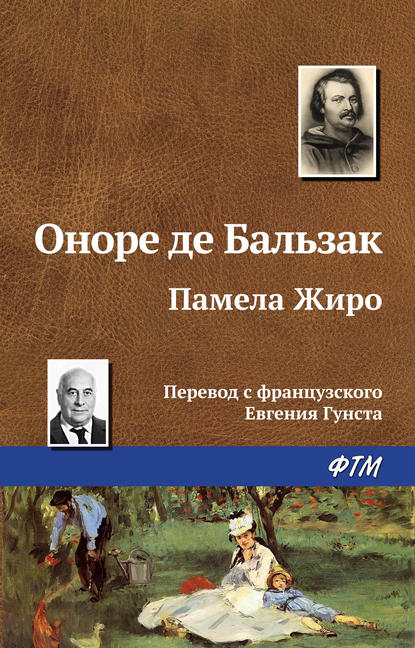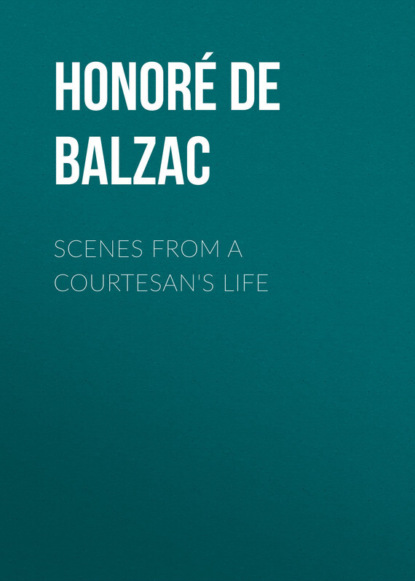
Полная версия
Scenes from a Courtesan's Life
“And now that you have learned my true name, Monsieur le Baron, will you tell me what it is you want?”
When the Baron had given a long and copious explanation, in his hideous Polish-Jew dialect, of his meeting with Esther and the cry of the man behind the carriage, and his vain efforts, he ended by relating what had occurred at his house the night before, Lucien’s involuntary smile, and the opinion expressed by Bianchon and some other young dandies that there must be some acquaintance between him and the unknown fair.
“Listen to me, Monsieur le Baron; you must, in the first instance, place ten thousand francs in my hands, on account for expenses; for, to you, this is a matter of life or death; and as your life is a business-manufactory, nothing must be left undone to find this woman for you. Oh, you are caught! – ”
“Ja, I am caught!”
“If more money is wanted, Baron, I will let you know; put your trust in me,” said Peyrade. “I am not a spy, as you perhaps imagine. In 1807 I was Commissioner-General of Police at Antwerp; and now that Louis XVIII. is dead, I may tell you in confidence that for seven years I was the chief of his counter-police. So there is no beating me down. You must understand, Monsieur le Baron, that it is impossible to make any estimate of the cost of each man’s conscience before going into the details of such an affair. Be quite easy; I shall succeed. Do not fancy that you can satisfy me with a sum of money; I want something for my reward – ”
“So long as dat is not a kingtom!” said the Baron.
“It is less than nothing to you.”
“Den I am your man.”
“You know the Kellers?”
“Oh! ver’ well.”
“Francois Keller is the Comte de Gondreville’s son-in-law, and the Comte de Gondreville and his son-in-law dined with you yesterday.”
“Who der teufel tolt you dat?” cried the Baron. “Dat vill be Georche; he is always a gossip.” Peyrade smiled, and the banker at once formed strange suspicions of his man-servant.
“The Comte de Gondreville is quite in a position to obtain me a place I covet at the Prefecture of Police; within forty-eight hours the prefet will have notice that such a place is to be created,” said Peyrade in continuation. “Ask for it for me; get the Comte de Gondreville to interest himself in the matter with some degree of warmth – and you will thus repay me for the service I am about to do you. I ask your word only; for, if you fail me, sooner or later you will curse the day you were born – you have Peyrade’s word for that.”
“I gif you mein vort of honor to do vat is possible.”
“If I do no more for you than is possible, it will not be enough.”
“Vell, vell, I vill act qvite frankly.”
“Frankly – that is all I ask,” said Peyrade, “and frankness is the only thing at all new that you and I can offer to each other.”
“Frankly,” echoed the Baron. “Vere shall I put you down.”
“At the corner of the Pont Louis XVI.”
“To the Pont de la Chambre,” said the Baron to the footman at the carriage door.
“Then I am to get dat unknown person,” said the Baron to himself as he drove home.
“What a queer business!” thought Peyrade, going back on foot to the Palais-Royal, where he intended trying to multiply his ten thousand francs by three, to make a little fortune for Lydie. “Here I am required to look into the private concerns of a very young man who has bewitched my little girl by a glance. He is, I suppose, one of those men who have an eye for a woman,” said he to himself, using an expression of a language of his own, in which his observations, or Corentin’s, were summed up in words that were anything rather than classical, but, for that very reason, energetic and picturesque.
The Baron de Nucingen, when he went in, was an altered man; he astonished his household and his wife by showing them a face full of life and color, so cheerful did he feel.
“Our shareholders had better look out for themselves,” said du Tillet to Rastignac.
They were all at tea, in Delphine de Nucingen’s boudoir, having come in from the opera.
“Ja,” said the Baron, smiling; “I feel ver’ much dat I shall do some business.”
“Then you have seen the fair being?” asked Madame de Nucingen.
“No,” said he; “I have only hoped to see her.”
“Do men ever love their wives so?” cried Madame de Nucingen, feeling, or affecting to feel, a little jealous.
“When you have got her, you must ask us to sup with her,” said du Tillet to the Baron, “for I am very curious to study the creature who has made you so young as you are.”
“She is a cheff-d’oeufre of creation!” replied the old banker.
“He will be swindled like a boy,” said Rastignac in Delphine’s ear.
“Pooh! he makes quite enough money to – ”
“To give a little back, I suppose,” said du Tillet, interrupting the Baroness.
Nucingen was walking up and down the room as if his legs had the fidgets.
“Now is your time to make him pay your fresh debts,” said Rastignac in the Baroness’ ear.
At this very moment Carlos was leaving the Rue Taitbout full of hope; he had been there to give some last advice to Europe, who was to play the principal part in the farce devised to take in the Baron de Nucingen. He was accompanied as far as the Boulevard by Lucien, who was not at all easy at finding this demon so perfectly disguised that even he had only recognized him by his voice.
“Where the devil did you find a handsomer woman than Esther?” he asked his evil genius.
“My boy, there is no such thing to be found in Paris. Such a complexion is not made in France.”
“I assure you, I am still quite amazed. Venus Callipyge has not such a figure. A man would lose his soul for her. But where did she spring from?”
“She was the handsomest girl in London. Drunk with gin, she killed her lover in a fit of jealousy. The lover was a wretch of whom the London police are well quit, and this woman was packed off to Paris for a time to let the matter blow over. The hussy was well brought up – the daughter of a clergyman. She speaks French as if it were her mother tongue. She does not know, and never will know, why she is here. She was told that if you took a fancy to her she might fleece you of millions, but that you were as jealous as a tiger, and she was told how Esther lived.”
“But supposing Nucingen should prefer her to Esther?”
“Ah, it is out at last!” cried Carlos. “You dread now lest what dismayed you yesterday should not take place after all! Be quite easy. That fair and fair-haired girl has blue eyes; she is the antipodes of the beautiful Jewess, and only such eyes as Esther’s could ever stir a man so rotten as Nucingen. What the devil! you could not hide an ugly woman. When this puppet has played her part, I will send her off in safe custody to Rome or to Madrid, where she will be the rage.”
“If we have her only for a short time,” said Lucien, “I will go back to her – ”
“Go, my boy, amuse yourself. You will be a day older to-morrow. For my part, I must wait for some one whom I have instructed to learn what is going on at the Baron de Nucingen’s.”
“Who?”
“His valet’s mistress; for, after all, we must keep ourselves informed at every moment of what is going on in the enemy’s camp.”
At midnight, Paccard, Esther’s tall chasseur, met Carlos on the Pont des Arts, the most favorable spot in all Paris for saying a few words which no one must overhear. All the time they talked the servant kept an eye on one side, while his master looked out on the other.
“The Baron went to the Prefecture of Police this morning between four and five,” said the man, “and he boasted this evening that he should find the woman he saw in the Bois de Vincennes – he had been promised it – ”
“We are watched!” said Carlos. “By whom?”
“They have already employed Louchard the bailiff.”
“That would be child’s play,” replied Carlos. “We need fear nothing but the guardians of public safety, the criminal police; and so long as that is not set in motion, we can go on!”
“That is not all.”
“What else?”
“Our chums of the hulks. – I saw Lapouraille yesterday – He has choked off a married couple, and has bagged ten thousand five-franc pieces – in gold.”
“He will be nabbed,” said Jacques Collin. “That is the Rue Boucher crime.”
“What is the order of the day?” said Paccard, with the respectful demeanor a marshal must have assumed when taking his orders from Louis XVIII.
“You must get out every evening at ten o’clock,” replied Herrera. “Make your way pretty briskly to the Bois de Vincennes, the Bois de Meudon, and de Ville-d’Avray. If any one should follow you, let them do it; be free of speech, chatty, open to a bribe. Talk about Rubempre’s jealousy and his mad passion for madame, saying that he would not on any account have it known that he had a mistress of that kind.”
“Enough. – Must I have any weapons?”
“Never!” exclaimed Carlos vehemently. “A weapon? Of what use would that be? To get us into a scrape. Do not under any circumstances use your hunting-knife. When you know that you can break the strongest man’s legs by the trick I showed you – when you can hold your own against three armed warders, feeling quite sure that you can account for two of them before they have got out flint and steel, what is there to be afraid of? Have not you your cane?”
“To be sure,” said the man.
Paccard, nicknamed The Old Guard, Old Wide-Awake, or The Right Man – a man with legs of iron, arms of steel, Italian whiskers, hair like an artist’s, a beard like a sapper’s, and a face as colorless and immovable as Contenson’s, kept his spirit to himself, and rejoiced in a sort of drum-major appearance which disarmed suspicion. A fugitive from Poissy or Melun has no such serious self-consciousness and belief in his own merit. As Giafar to the Haroun el Rasheed of the hulks, he served him with the friendly admiration which Peyrade felt for Corentin.
This huge fellow, with a small body in proportion to his legs, flat-chested, and lean of limb, stalked solemnly about on his two long pins. Whenever his right leg moved, his right eye took in everything around him with the placid swiftness peculiar to thieves and spies. The left eye followed the right eye’s example. Wiry, nimble, ready for anything at any time, but for a weakness of Dutch courage Paccard would have been perfect, Jacques Collin used to say, so completely was he endowed with the talents indispensable to a man at war with society; but the master had succeeded in persuading his slave to drink only in the evening. On going home at night, Paccard tippled the liquid gold poured into small glasses out of a pot-bellied stone jar from Danzig.
“We will make them open their eyes,” said Paccard, putting on his grand hat and feathers after bowing to Carlos, whom he called his Confessor.
These were the events which had led three men, so clever, each in his way, as Jacques Collin, Peyrade, and Corentin, to a hand-to-hand fight on the same ground, each exerting his talents in a struggle for his own passions or interests. It was one of those obscure but terrible conflicts on which are expended in marches and countermarches, in strategy, skill, hatred, and vexation, the powers that might make a fine fortune. Men and means were kept absolutely secret by Peyarde, seconded in this business by his friend Corentin – a business they thought but a trifle. And so, as to them, history is silent, as it is on the true causes of many revolutions.
Конец ознакомительного фрагмента.
Текст предоставлен ООО «Литрес».
Прочитайте эту книгу целиком, купив полную легальную версию на Литрес.
Безопасно оплатить книгу можно банковской картой Visa, MasterCard, Maestro, со счета мобильного телефона, с платежного терминала, в салоне МТС или Связной, через PayPal, WebMoney, Яндекс.Деньги, QIWI Кошелек, бонусными картами или другим удобным Вам способом.





